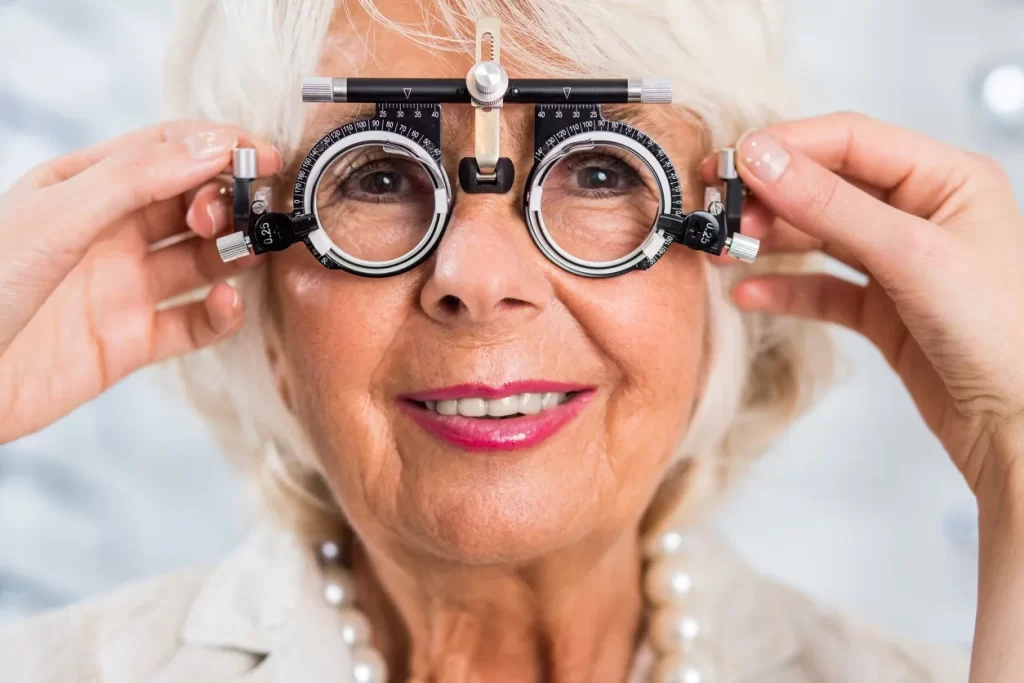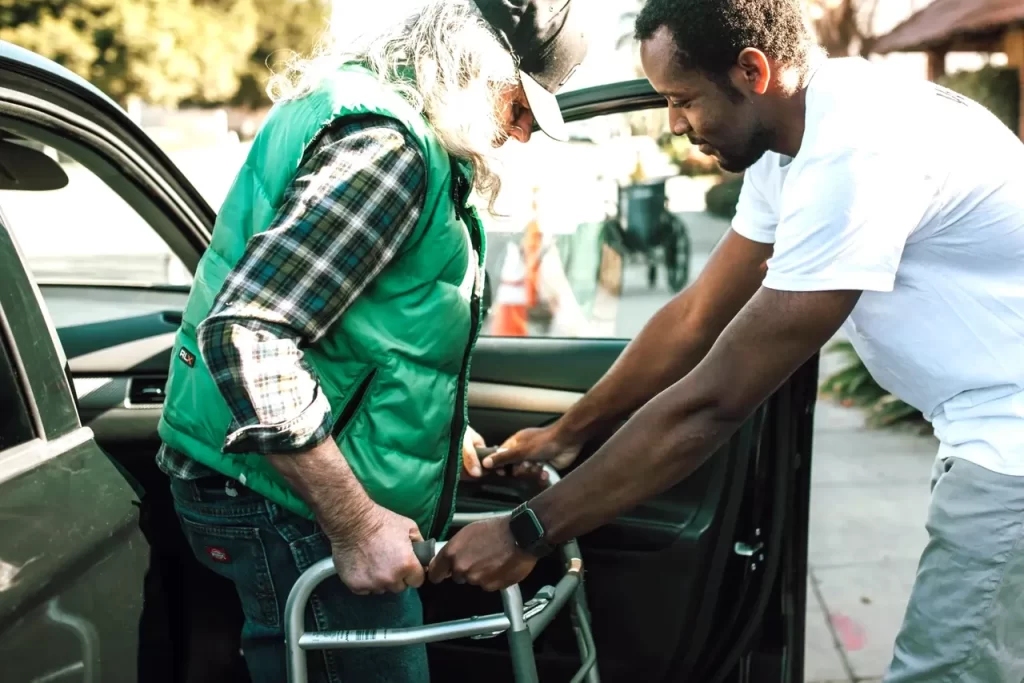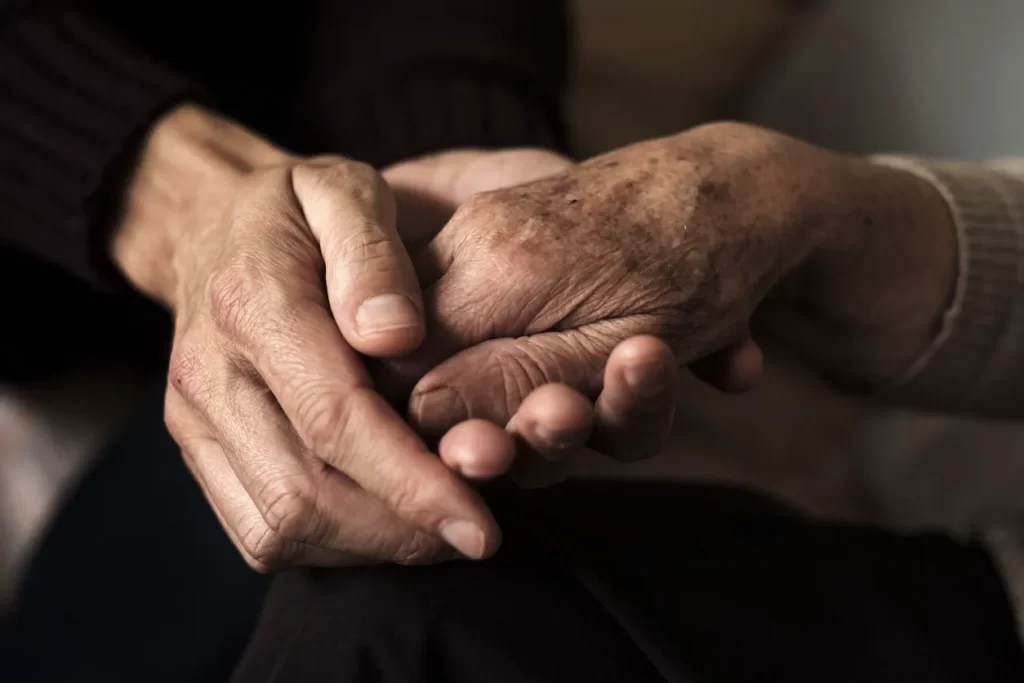Social Media for Professional Learning

Signature Assignment The Integrated Classroom and the Role of the Educator LaVona Tomberlin AET/562 Social Media for Professional Learning University of Phoenix December 19, 2022 Dr. Sean Spear The Integrated Classroom and the Role of the Educator A Graceful Transition(AGT) is a patient centered company and the care that we provide our patients is first and foremost. In order to maintain our level of care and our occupancy it is of the utmost importance that we maintain our reputation. We believe in innovation, creatively sharing, and learning with the use of social media tools and we want to take advantage of the edge that technology offers. With technology comes accountability and creating a positive culture so we must take steps and plan to be creative in the most positive way. We must move forward in a way that does not compromise our integrity and our reputation in any way. The access to cyber connection makes it necessary to create company policies to invent guidelines and circumvent problems. Social Learning Social learning is simply learning from the observation and sharing of information. When people with different skill sets are teamed together they will learn from one another and they will remember what they learn because they will be using it as they observe and learn. We experience this as we work in teams here at UOP. Each of us have different skills and we rely on each other to do what we do best and at the same time we learn each other’s skills and are stronger and more skilled because we are together. We each bring a strength to the relationship, we collaborate and we build a relationship as we work together. Social or informal learning is an effective way to address employees’ learning needs. It is the process of learning with and from others within the organization, informally and by sharing knowledge. Social learning is simply learning from the observation and sharing of information. When people with different skill sets are teamed together they will learn from one another and they will remember what they learn because they will be using it as they observe and learn. We experience this as we work in teams here at UOP. Each of us have different skills and we rely on each other to do what we do best and at the same time we learn each other’s skills and are stronger and more skilled because we are together. We each bring a strength to the relationship, we collaborate and we build a relationship as we work together. Effects of Social Learning Social learning effects the workplace in a very positive way. Social learning reinforces the perception of a task as being novel or different which allows employees to learn better because of increased interest. We learn by internalizing information and we recall the information when we are faced with a similar situation, in business this is the reality and it builds retention. We also learn by repeating a process and since in business we are able to repeat processes we learn by the reproduction of problems and their solution as we use those new skills over and over. Motivation comes from doing something well and knowing that there is a team to help. Social learning provides that team and the support that is needed through communication and relationship building (Meij, 2022). Social learning will shorten onboarding time for new hires. It will promote skill sharing and better use of existing talents while inspiring more collaboration. It will allow employees to learn in their own time. When all is said and done it increases engagement, positive growth in job and organization performance and collaboration, the sharing of ideas to solve problems, and very important, retention of employees (Meij, 2022). Organizational Culture Social learning changes the culture of an organization from a culture of individuals to a culture of teams. Instead of a group of employees who work as individuals they will now have a group of individuals that communicate and collaborate exchanging ideas and sharing ideas and working as a team. They will have cohesiveness and employees that support one another and in so doing will be motivated as a team and will be more productive and successful. This culture will promote success within an organization and success for the individual (Meij, 2022). Social learning and role of the trainer The trainer assesses the readiness to adopt social learning and set the goals for the process. In social learning each person becomes a trainer but there must be one person that is the facilitator or maybe more. Their job is to make it happen, especially at first, to make sure that it is begun. They facilitate the process by making sure there is a richer use of the existing knowledge base. They direct learning paths and oversee discussion forums. They have access to experts to coach and mentor. They facilitate sharing of experiences and learning. They create communities of interest. They encourage learners to contribute and enhance the knowledge base. They improve the access to information or ensure a speedy update or dissemination of new information. They provide and take feedback by having formal feedback sessions with learners to determine what is working and what is not and to re-strategize to meet the goal (Pandey, 2017). Accountability Social media tools can have a positive or negative effect on an employee’s online and in-person reputation depending on their use of the tool. A person who uses social media effectively to communicate with other employees to help to ease a work load or to teach or train by answering questions and being of help will be well thought of. They might post a word of praise for another employee so that they are recognized for a kindness. These are all positive things that could boost their reputation. On the other hand if they posted a complaint about other employees or a negative about a training event that would be negative and demonstrate a
Caregiver Near Me

Emotional Toll Caring for Loved Ones whether growing older or youthful accident which leaves them in your care is going to have an emotional toll. All kinds of issues arise, there are good days and not so good days. As dementia cases continue to rise, the emotional burden on caregivers can grow heavy if you are not taking care. Caregivers are often the unsung heroes in a difficult situation, providing support and care for those they love and the people around them. Succinctly, the reality of watching someone you once knew slip away can be heartbreaking. In that heartbreak the emotional toll must be mitigated some how. Jennifer Kem wisely reminds us, “A caregiver cannot help anyone if they themselves are running ragged.” This sentiment underscores the importance of self-care for caregivers, who often neglect their own needs in the process of caring for others. Impact on Caregivers Caregivers face a unique set of challenges that can lead to mental health issues such as anxiety, depression, and insomnia. The emotional distress of seeing a loved one forget who you are or struggle with daily tasks can be overwhelming. As the disease progresses, caregivers often find it difficult to relate to the person they once knew, leading to feelings of isolation and sadness. It’s crucial for caregivers to recognize these feelings and seek help when needed. Support groups, therapy, and even casual meetups with friends can provide the emotional relief necessary to cope with the situation. Caregivers should also prioritize their physical health by incorporating regular exercise, nutritious eating, and good sleep hygiene into their routines. Coping Skills Protective Factors, or coping skills, for Caregivers and Loved Ones is very important. While the emotional toll on caregivers is significant, there are protective factors that can help not only the caregiver but also the person experiencing dementia: Regular Physical Activity – Encouraging caregivers to engage in regular physical activity is essential. This not only helps reduce stress but also boosts overall mental health. Whether it’s a brisk walk or a yoga class, movement is key. Eating Healthy – A balanced diet can improve both physical and mental well-being. Caregivers should make it a priority to eat nutritious foods, which can help maintain their energy levels and mood. Building a Healthy Support Network – Creating a strong support system is vital. This network should include friends, family, and even online communities. However, face-to-face interactions are crucial for emotional support. Good Sleep Routine – Quality sleep is essential for effective caregiving. Establishing adequate sleep hygiene can help caregivers recharge and maintain focus and patience. Regulating Stress and Emotions – Finding ways to manage stress is critical. Caregivers should not hesitate to seek professional help or lean on their support networks. Simple practices like deep breathing, meditation, or spending time in nature can have profound effects on mental health. Self-Care Ideas for Caregivers Incorporating small acts of self-care into our daily routines can make a big difference to everyone. You can even used these for the person you care for! Here are some practical ideas: Get a Massage: Treat yourself to a relaxing massage to relieve physical tension and improve your mood. Invite a Friend for Coffee: Social interactions can provide a much-needed emotional lift and remind you that you’re not alone. Create a Feel Good List: Write down five things you can do each day that make you feel good, smile, or laugh. Strive to do one a day. This could be listening to your favorite music, watching a funny show, or taking a moment to enjoy nature. Conclusion Caring for someone with dementia is an incredibly challenging journey, but it’s important for caregivers to remember that they are not alone. Taking proactive steps to care for their own mental and physical health can not only enhance their ability to support their loved ones but also improve their quality of life. For more ideas on engaging activities that can benefit both caregivers and loved ones, check out these dementia-friendly activities and fun ideas for brain health. Remember, the best way to care for someone else is to first care for yourself.
Placement Timeliness

Your Go To When is it Time to find a Senior Living Community? Deciding to place a loved one in any situation, whether it be Assisted Living, Memory Care, or Adult Care Home, is difficult, frightening, and guilt-ridden for anyone. As placement agents, how do we make this difficult task less difficult? As Placement Specialists, we are called upon to know about many things; more than that, we need to share what we know. We need to be the “Go to” for information and support for the family and the client. We need to take the burden from the family’s shoulders and take it upon ourselves to lighten their load. Support We must realize that the person who is closest to the client suffering from dementia probably does not have much support from those on the sidelines. The doctor may be unaware of the decline because the patient is at their best when they see the doctor. Friends and family call, and the patient has a normal conversation. Friends and family may take the patient on short outings or come for short visits, and again, the patient is at their best. These people may question your decisions and even accuse you of having ulterior motives, and you may feel guilty as if you are abandoning the patient. Now it deserves a moment to speak on Immediate Memory. Imagine a circle of people outside of the circle of 24hour care. It is necessary to listen and trust the 24hour caregiver closest to the person receiving care. Here is why, something that happens at this stage to the patient. They start acting like everything is ok during a one off visit. The loved one is in fact going to have no memory of what has gone on during a short visit. Only those people in his day to day. Immediate Memory feels like a put on, they can act normal for a short visit. Being able to dwell with people but having no memory. The person who deals with this is faulted because the loved one seems ok. Unless you live with the person 24 hours as constant caregiver you should realize the depth of care is different. This behavior seems performative and it is. It can also be signs of the early stages of Dementia. Selfcare First, we need to point out that if you do not take care of yourself, you will be worthless to anyone else. Second, it is important to understand that when you become a caregiver, you often lose your standing as a wife, husband, child, grandchild, or friend. You may become the target of their anger and frustration, and they also lose the relationship that means so much, and loneliness ensues for both of you. With Love Placing a loved one in an appropriate housing or care is the most loving act that one can do to show your love. You see the patient receiving the necessary care while maintaining your relationship with them. You may initially be the “bad” person, but this will pass, and you will come through it as their rock and return to your initial relationship as husband, wife, daughter. It is our experience that when you let someone else be their caregiver you can return to giving emotional loving support. Be their loving person rather than their day to day, 24/7 caregiver. You can feel great knowing you have provided safety and care and may be lucky to see them thrive. When they feel better and understand they are receiving what is best for them, you are the “good” person they love. You will feel loved and appreciated because they know they are loved. There are times that as a family-member caregiver that you will feel rejected and unloved. It is hard to be loving 24/7 and when someone treats you badly we often feel detached, a little or a lot or just a little bit angry. This is where more selfcare can help you. Where you feel you are actually about to disassociate. Stop for a moment and give yourself a break. By giving care to your loved one and not care to yourself you can break your psyche. It is not your duty. You are too involved being the “caregiver” of another and not giving yourself enough time. It is unfortunate for both and it really is the same for every caregiver. It is too much and it is always going to be time for things to change for the family. Mindfulness Be aware of your feelings and accept your knowledge. Although others may mean well, they are not present enough to know and accept the truth of the situation. Make the decision that is best for you and your loved one. Look at your past and, more importantly, look to the future. You will make the right decision and AGT can help if you are in the Portland, Oregon area.
Dealing With Grief of a Loved One

Losing a Loved One. Losing a Mother. Loved One Lost. I cared for my mother for 5 ½ years expecting that she would die at any time. Therefore, I was sure. that as she was declining, I would be fine when I lost her. Afterall, I had expected this for over a half decade! Was I prepared for the inevitable Lose of a my Loved One? No. I was not prepared. Losing a Loved One that has been your focus for 5 ½ years is not going to be easy. Losing your Loved One is not easy. We have to remember that our mothers have been our anchor for our entire life. Even though their bodies are failing. First and foremost, if we have a problem, we discuss it with Mom. Mom always supports us. She is there gently, sometimes not so gently, guides us. Then, as I wander from room to room I am stuck on circular thinking; “I have so much to do only to accomplish nothing”. In conclusion, I am overwhelmed. I want to discuss my pain, my loss, my mom. However, my mom, my sounding board, is not there. I wonder constantly why I am all alone and why do I want to continue this same path? Even now, after letting her go in 2021, I ask myself; “How long will this sadness be with me?” “When will I get over being Violet’s daughter and just be me and depend on me?” Then, I realize that I am sad, very sad. I am missing someone who I have counted on for my whole life. She was not always in the same town. We did not always live in the same state. We had different homes, but she was always there. Grief Resources: There is loss, therefore there is NIA. National Institute on Aging, NIA, research has furthered our understanding of the nature of aging. NIA leads a broad scientific effort to understand the nature of aging and to extend the healthy, active years of life. END OF LIFE What To Do After Someone Dies CDC on dealing with grief – There are many different types of loss. We may experience loss of income or a job, loss of control, or loss of connection with family or with friends. How Right Now Emotion – Dealing with Grief
Assisted Living Facilities Near Me -Best Brain Health – Dementia

Senior Living Article Focus: You Best Brain Health before and after Dealing with Dementia Life Transitions Series is a group of Posted Articles which will help all of us to understand the Transitions which eventually happen to us all. We will ask and attempt to discuss What transitions do older adults face? Dealing with Dementia is simple. Dementia is a group of conditions characterized by impairment of at least two brain functions, such as judgment and memory loss. Some symptoms in a person with Dementia includes forgetfulness, limited social skills, and thinking abilities so impaired that it interferes with daily functioning. There is good news; Medications and therapies may help manage symptoms. Some causes of Dementia are reversible with care. Dealing with Dementia There are things that must be remembered when dealing with a person who has dementia. These will vary somewhat through the stages. Always remember that you are dealing with a person, an individual, who is losing their independence. This is frightening and frustrating to them; especially in the first stages. Make suggestions; do not give orders. Do not point out small failures like not turning off the stove, not flushing the toilet, not getting to the bathroom on time, just anything that should be done but is not. These are indications of their needing assistance and will give you an idea of the level of their dementia and the amount of decline. Simply go behind them and make the corrections that are needed. If they notice that you are doing this cover with everyone makes mistakes, no one is perfect and it is taken care of. As dementia progresses the person will remember less and less. They may not remember your name or what you have done for them but they will always remember how you made them feel. If you made them happy you will always be met with a smile. If you made them unhappy you will not be trusted and will be treated accordingly. Memories die but feelings remain. Remembering this will keep you on track. Typical Types of Memory Loss: 1. Amnesia we list three here: Retrograde amnesia: For reference watch Memento with Carrie-Anne Moss. Retrograde means from a time backward. People who have Retrograde amnesia may say; When did we get here?, How did we get here?, Who are you? This Retrograde amnesia is the inability to recall memories from before a specific event, such as a head injury or illness. So they may forget everyone from a section of time maybe they remember themselves as a teenager backward. Anterograde amnesia: Anterograde means from a time forward. People with this condition have trouble forming new memories after the specific event. They can maintain a conversation or even say they remember something that recently happened but they really don’t when quizzed on the specifics. Transient global amnesia: A temporary form of amnesia that lasts for a few hours to a few days. 2. Mild Cognitive Impairment (MCI): Not severe enough to interfere with ADLs or Activities of Daily Living, yet a decline in memory and other cognitive functions is noticeable. 3. Dementia: Think of Dory from the movie Finding Nemo. A progressive decline in cognitive abilities, including memory, that significantly impairs daily functioning. Common types of dementia include Alzheimer’s disease which you may have heard of, vascular dementia relating to the vascular system, and frontotemporal dementia having to do with the front portion of a persons brain. 4. Post-Traumatic Amnesia: Think of the movie Overboard with Goldie Hawn. Or Regarding Henry with Harrison Ford. Memory loss that occurs after a head or a traumatic brain injury (TBI). 5. Psychogenic Amnesia: Trauma or stress can also cause memory loss since such events carry psychological factors. 6. Age-Related Memory Loss: A gradual decline in memory fortunately this is a normal part of aging. May we all forget we have wrinkles and forget our age. Other Causes of Memory Loss: Brain tumors, Stroke, Infections, Medication side effects, and Thyroid disorders. Remember, memory loss can be a symptom of various underlying conditions, those that are seemingly simple and complex. Should you ever experience memory problems no matter how small, it’s essential to consult a healthcare professional. This article and those appearing on our website do not ever substitute for proper professional diagnosis and treatment of your personal doctor. Movies Dealing with Memory Loss Read more from LaVona: Losing a Loved One: Bereavement – Cope with Grief over the Loss of a Loved One Here are more resources to help you learn more about Dementia and this Life Transition: CDC looks at Dementia as a possible Life Transitions – What Is Dementia? Life Transitions Short Term Memory Loss Life Transitions: Immediate Memory Memory Loss (Short- and Long-Term)
Assisted Living Near Me – Best Brain Health – Memory Loss

Long Term Memory and Short Term Memory Transitions How do we make a graceful transition into elder care? The Assisted Living Near Me Collection of Articles is a group of AGT Articles which will help all of us to understand A Graceful Transition into aging. Eventually aging happens to us all. We will discuss best brain health: What kind of graceful transition options for living situations do older adults face? This may include Assisted Living Near Me, or Memory Care, Adult Care Home or Facilities. Whatever you plan for we help you every step along the way. Recognition Short term memory loss occurs along with Immediate Memory Loss and is apparent to those close to the person starting on that horrible voyage called dementia. No person goes on this journey alone and no one is left untouched. Short term memory loss occurs early in the progression of dementia. You may become aware of it by asking the person what happened in their day and they are unable to tell you. They may think it is time to eat just minutes after they have eaten. They do not remember a conversation that you have had with them just moments after it occurred. They become upset with you for withholding information that has recently been given to them. Short Term Memory Care Short term memory loss is very upsetting when you observe it. Imagine, if you would, how devastating it is to the person actually experiencing it and reminded of it at every turn. It makes them frustrated and angry at what they realize they are losing. This anger and frustration can be directed at you; the person they are closest to. What to Expect Short term memory loss makes a person unable to multitask. It makes them unable to do things that were second nature to them like make a bed and answer the phone when it rings during the process. It makes them unable to answer a question while performing a simple task. It accounts for the inability to turn off the stove when a mundane task is completed. It makes them believe that no one cares since they do not remember recent communications. In short, it makes them feel like they are losing control, which is in fact, what is happening to them. Before Assisted Living – How to Help How do we deal with short term memory and provide the graceful transition that is needed? Perhaps a calendar with any appointments that they need to be aware of and a reminder to look at that calendar until it becomes an intricate part of their daily functions. Try a journal that you keep for them recording calls or visitors that they have received. You can also record, in that journal, meals they have had and times they had them. A strict schedule of meal times seems to help and it gives them structure to their day. Do not mention any short comings, just check on them and make any adjustments that need to be made, like turning off the stove, closing the refrigerator, flushing the toilet, and seeing that they have taken their medications. Long Term Memory Care During this time their long-term memory may well be intact. You will find that they will tell you stories over and over again. Know that they do not remember that you have heard these stories numerous times. Also know that these memories are all that they have to talk about since they do not remember what happened this week, today, or 30 minutes prior to the telling. Listen, perhaps make notes of these conversations. Trust me, you will want to remember them later when the talking ends. Long term memory will end along with the frustration since they will no longer be aware of their losses. The time will come when they may need reminding to toilet, brush their teeth, bathe and they’ll be unable to fix their own meals or make decisions as to what those meals will be. The most difficult thing for those of us who live with dementia, that is not our own, is that we lose the person that we know and love long before we actually lose them. Understand that mourning their loss begins long before we mourn their death. Read more from LaVona Here are more resources to help you learn more about Short Term Memory Loss and this Life Transition: Mayo Clinic look at this Life Transitions – healthy lifestyle for aging an in depth look at memory loss Contact us about finding your ideal placement or Assisted Living Near Me
Assisted Living Facilities – Best Brain Health – Memory Care

Immediate Short Term Memory Transitions Assisted Living Transitions Series is a group of AGT Articles which will help all of us to understand the Transitions which eventually happen to us all. We explore types of care facilities for people with memory issues. This may be Dementia or Alzheimer’s. Long-term care for people with Alzheimer’s disease or other kinds of dementia can take many forms, including: Assisted living facilities. An Assisted Living Community is the type of facility that provides a balance between independent living with a range to full assistance. We all need to know what happens and where the best placements for our elders are as we all age. For some the best is nursing homes near me, for others Community Senior Living, for others we will need Assisted Living near me or Long Term Care. Here we discuss what transitions older adults face. Immediate Memory #1 Immediate Memory is a new term for me and I have dealt with different levels of dementia for years. Are you living with a person or caring for a person and you are aware of the fact that they are suffering from dementia? Are you unable to obtain support because they perform well for short periods of time? Knowledge is power! Immediate Memory is what occurs early in dementia progression. It is what those closest to a person, who spend extended periods of time with that person, recognize as dementia. They are able to carry on a conversation that makes them appear cognizant but often quickly forget that the conversation happened. A phone call or a short visit is not enough to convince anyone that they are beginning to lose their memory. A visit to the doctor does not accomplish getting a diagnosis of dementia because they are at their best during these visits. They become angry and agitated if you point out that a conversation actually happened that they don’t remember. They get defensive if you point out that they did not take their medications. They accuse you of not sharing information with them. You feel stuck and alone because of the lack of support you are getting and the additional care that you are unable to provide for your loved one. Immediate Memory #2 The ”being able to carry on a conversation” is immediate memory. Short term memory loss is when they do not remember the conversation 20 minutes later. They do not remember the conversation and will let you know that they have not heard from that person for a long period of time. The solution: Document conversations that are forgotten so that you have factual information to share with the physician and with those who are in denial. Avoid arguments with the person you are caring for. If family members refuse to believe; arrange for them to spend several days with the person so that they can see first hand and become aware and supportive. Short phone calls and short visits will not work. Share your responsibility by arranging for “enlightening” visits. You will feel better. You will gain support. Your loved one will be safe. Immediate Short Term Memory Transitions are Common life transitions. Life Transitions, for example; retirement, becoming empty-nesters, moving and, or downsizing, personal loss, health issues, as we grow older social interaction can decrease, and social status and financial upticks could also change due to rising costs. As we age, we may experience a decline in health. The death of a spouse affects men and women differently the death of a close family member or friend. We all encounter some impactful life transitions. Immediate Memory. What is an example of immediate memory? The drive from work everyday may have many details all in Immediate Memory. We put the information there until we determine its value. Then, if we need the face of the man in the crosswalk or the license plate number of the woman in front of us we have that information. Immediate Memory is temporary brain storage until we make a decision on how to use or dispose of it. Subconsciously or consciously our brain holds details for roughly 30 seconds. Read more from LaVona: Losing a Loved One: Bereavement – Cope with Grief over the Loss of a Loved One Learn about Short Term Memory Loss and this Life Transition: Mayo Clinic look at this Life Transitions – healthy lifestyle for aging an in depth look at memory loss Nelson Cowan – Progress in Brain Research – What are the differences between long-term, short-term, and working memory?
Assisted Living – Best Brain Health – Alcohol

What happens when you drink heavily? Count on Assisted Living for the future. Wernicke-Korsakoff Syndrome is a serious issue for our parents who heavily imbibe now or were heavy drinkers earlier in their life. Basically Wernicke can level out but it does not completely go away. Korsakoff is the second part of a two part syndrome and it changes the gait of their walk and weakens them to the point that they are very wobbly and unstable while standing. This is when alcohol effects have really taken the body and this part rarely goes away. The syndrome together is the effect of alcohol damage to the brain and is terminal. Drinking does not cause it, however, excessive drinking over a prolonged time will be the cause. Wernicke-Korsakoff Syndrome WKS and Korsakoff Wernicke-Korsakoff Syndrome (WKS) is one name for 2 conditions that often happen together. Wernicke is encephalopathy and it is often accompanied by Korsakoff syndrome. It is thought to be different stages of the same disease. It typically comes on suddenly and immediate treatment is needed. Symptoms of Alcohol Symptoms include confusion, loss of muscle coordination, and trouble with vision. Korsakoff syndrome happens slowly. It is a long term, ongoing problem that damages the part of the brain that handles memory. How? A deficit of vitamin B1 or thiamine is the culprit. Thiamine or vitamin B1 helps the brain turn sugar to energy. When there is a deficit of this vitamin the brain does not function well. Alcohol use inhibits thiamine absorption, and heavy drinkers normally have poor dietary habits. It may have hereditary aspects as well but the most common presentation is a chronic alcoholic patient who is poorly nourished. WKS is typically associated with chronic alcoholism. Changes that occur may be subtle but knowing of them can help you recognize them: Lethargy Drowsiness Inattentiveness/indifference Mental confusion Vision problems Muscle weakness Muscle coordination issues, especially walking/gait Tremor Recent or short-term memory difficulties Exaggerated storytelling Agitation Compassionate Care As we age our condition does not improve as health and brain begin to decline we may need to seek proper care. Lancet Public Health has a study published suggesting that alcohol abuse addiction disorders are risk factors in the body for dementia, specifically early onset dementia. Compassionate and individualized care for individuals with Wernicke-Korsakoff Syndrome is a must. Where can you find care for your loved one or plan for yourself because of past indulgences? What will alcohol abuse look like for me 50 years from now? Typically, WKS is treated as an Alzheimer’s issue. This will mean placement in an Alzheimer equipped Adult Community, Assisted Living or a Senior Living Community with Memory Care will be in the cards. More Symptoms of Alcohol More acute symptoms that may indicate the need for more immediate medical attention include rapid heartbeat, low blood pressure, low body temperature, hallucinations, delirium, or stupor. Schedule an appointment if any of these symptoms are apparent and make sure that the family member has an advocate with them. Since alcoholism is, many times, an ism that is not shared with even those closest to the person experiencing it, it is essential that the truth is provided to the physician in order for the alcoholic to receive the proper care. Honesty will, quite possibly, be the difference in whether help is received and can save the person’s life. Withholding information can only make matters worse and result in shortening that person’s life. Diagnosis Diagnosis of Wernicke-Korsakoff syndrome requires a full medical history, including information regarding the person’s daily drinking habits, both past and present, and their dietary nutritional history. A physical examination to determine signs of malnutrition, lab work including blood count, electrolytes, and liver function tests. Test results can reflect alcoholism associated malnutrition or determine the level of thiamine. An MRI or CT scan may show enlarged ventricles and diencephalic lesions, shrunken mammillary bodies, and other changes to the brain. A referral by the psychiatrist or neurologist to a neuropsychologist is often necessary to quantify the degree of memory and other cognitive dysfunction and clarify the diagnosis. Physicians typically consult family, friends, and past medical records to get the most complete information possible on the person’s history with alcohol. Prognosis Treatment is critical and time sensitive. What happens when you drink? Wernicke-Korsakoff Syndrome for those who drink. If diagnosed and treated early, some or sometimes all symptoms can be reversed. Once it becomes chronic recovery is less certain. Stopping alcohol use and ensuring a nutritious diet may prevent additional brain and nerve damage. Memory function can be slow to improve and recovery is usually incomplete. In later stages, damage to the brain is more likely to be irreversible and individuals will most likely have lasting problems with memory and gait which can be presented as lack of muscle coordination and numbness or weakness in limbs. Without treatment Wernicke’s encephalopathy can be incapacitating and life-threatening causing death in 20% of patients. In 85% of survivors, it progresses to Korsakoff syndrome. If patient continues to use alcohol and follow a poor diet the condition and symptoms will worsen. This article is strictly for informational purposes only. We know everyone likes to Grok(AI) their symptoms but nothing can take the place of your personal physician for medical advice or diagnosis. Treatment Thiamine replacement therapy administered as soon as possible. Implementing consistent, good hydration and nutrition while abstaining from alcohol is the key. Resources for this article from our friends: The hero’s at ARK Behavioral Health – BUILDING A FOUNDATION FOR RECOVERY WITH INTEGRITY, TRANSPARENCY AND COMPASSION More reading about Wernicke-Korsakoff Syndrome from Standard of Care!
Assisted Living – Best Brain Health – Alcohol and Aging

Alcoholism and Aging Alcoholism comes with many issues. It is wise to look at those who have traversed similar paths to us and plan accordingly for our future. In the case of Alcoholism, combined with Aging, we are honestly looking at a future in Memory Care type Assisted Living. Life Transitions regarding Alcoholism and Aging can cause senior challenges. High levels of alcohol in the body can result in headaches, severe dehydration, nausea, vomiting, diarrhea, and indigestion. Drinking excessively, even on a single occasion, increases a person’s risk of detrimental health effects. If threat of illness does not detour the consumption of alcohol think of what it does to your skin. Skin Alcohol dehydrates the skin, depriving it of the moisture and nutrients it needs to keep the complexion looking radiant, supple and youthful. Deprivation of moisture increases the appearance of wrinkles, dryness and sagging skin. Alcohol is a diuretic which means it actively draws water away from the body, significantly lowering the body’s water level causing dehydration. Dehydrated skin can look dry and unhealthy both in color and texture. It causes increased redness or flushing of the skin, acne, blotchiness, puffiness and rosacea. Women and Alcohol Women are more vulnerable than men to many of the medical consequences of alcohol use. Alcoholic women develop cirrhosis, alcohol induced damage of the heart muscle (cardiomyopathy) and nerve damage (peripheral neuropathy) after fewer years of heavy drinking than do alcoholic men. Brain shrinkage is related to heavy drinking in both men and women. Alcohol Health Threats If the drinker is not worried about appearance and the fact that dementia is a real threat due to drinking; let’s delve into the other problems that it causes. To begin with drinking too much can weaken the immune system, making the body a much easier target for disease. Serious Over Drinkers: Chronic drinkers are more liable to contract diseases like pneumonia and tuberculosis than those who do not drink too much. Occasional Over Drinkers: Drinking a lot on a single occasion slows the body’s ability to ward off infections – even up to 24 hours after getting drunk. Continuous Drinkers: Sustained over drinking is known to affect the brain, heart, liver, and pancreas. Extended use of excessive alcohol is known to cause certain types of cancer. Let’s look at this per organ and then we will talk about cancer. Brain: Alcohol interferes with the brain’s communication pathways, and can affect the way the brain looks and works. These disruptions can change mood and behavior, and make it harder to think clearly and move with coordination. Heart: Drinking a lot over a long time or too much on a single occasion can damage the heart, causing problems including: Cardiomyopathy – stretching and drooping of heart muscle Arrhythmias – irregular heart beat Stroke High blood pressure Liver: Heavy drinking takes a toll on the liver, and can lead to a variety of problems and liver inflammations including: Steatosis, or fatty liver Alcoholic hepatitis Fibrosis Cirrhosis Pancreas: Alcohol causes the pancreas to produce toxic substances that can eventually lead to pancreatitis, a dangerous inflammation and swelling of the blood vessels in the pancreas that prevents proper digestion. I said that we would get to cancer; so here we are. Evidence indicates that the more alcohol a person drinks – particularly regularly over time- the higher his or her risk of developing an alcohol-associated cancer. Even those who have no more than one drink per day and people who binge drink (those who consume 4 or more drinks for women and 5 or more drinks for men in one sitting: have a modestly increased risk of some cancers. Based on data from 2009, an estimated 3/5% of cancer deaths in the U.S. (about 19,500 deaths were alcohol related. Types of cancer cited: Head and neck cancer, including oral cavity, pharynx and larynx cancers. Esophageal cancer, particularly esophageal squamous cell carcinoma. In addition, people who inherit a deficiency in an enzyme that metabolizes alcohol have been found to have substantially increased risks of esophageal squamous cell carcinoma if they consume alcohol. Liver cancer. Breast cancer: Studies have consistently found an increased risk of breast cancer in women with increasing alcohol intake. Women who consume about 1 drink per day have a 5 to 9 percent higher chance of developing breast cancer than women wo do not drink at all. Colorectal cancer. Drinkers Big Future: A real threat to the Alcoholic is something called Wernicke-Korsakoff Syndrome (WKS) or referred to casually as “wet brain” is a severe, life-threatening brain disorder that is caused by excessive alcohol consumption. 57,000 people were studied with early-onset dementia in a database of hospital admissions by Translational Health Economics Network in France. Their data shows 39% of the 57K showed their early-onset dementia was directly caused by an alcohol abuse disorder. In addition to this statistic, 18% had a diagnosis of alcohol addiction alongside that type of dementia. So how do we plan? With dementia on the horizon, planning is necessary. We need to count on being in an Assisted Living Facility. Here are more resources to help you learn more regarding Life Transitions Alcoholism and Aging: National Library of Medicine (NLM) study of Alcoholism and Aging Life Transitions – Effects of age and life transitions on alcohol and drug treatment outcome over nine years National Library of Medicine (NLM) Facts on Seniors Aging with Alcoholism If this article raised concerns for you about This article is strictly for informational purposes only. For medical advice or diagnosis we will always suggest you talk to your professional personal care provider.
